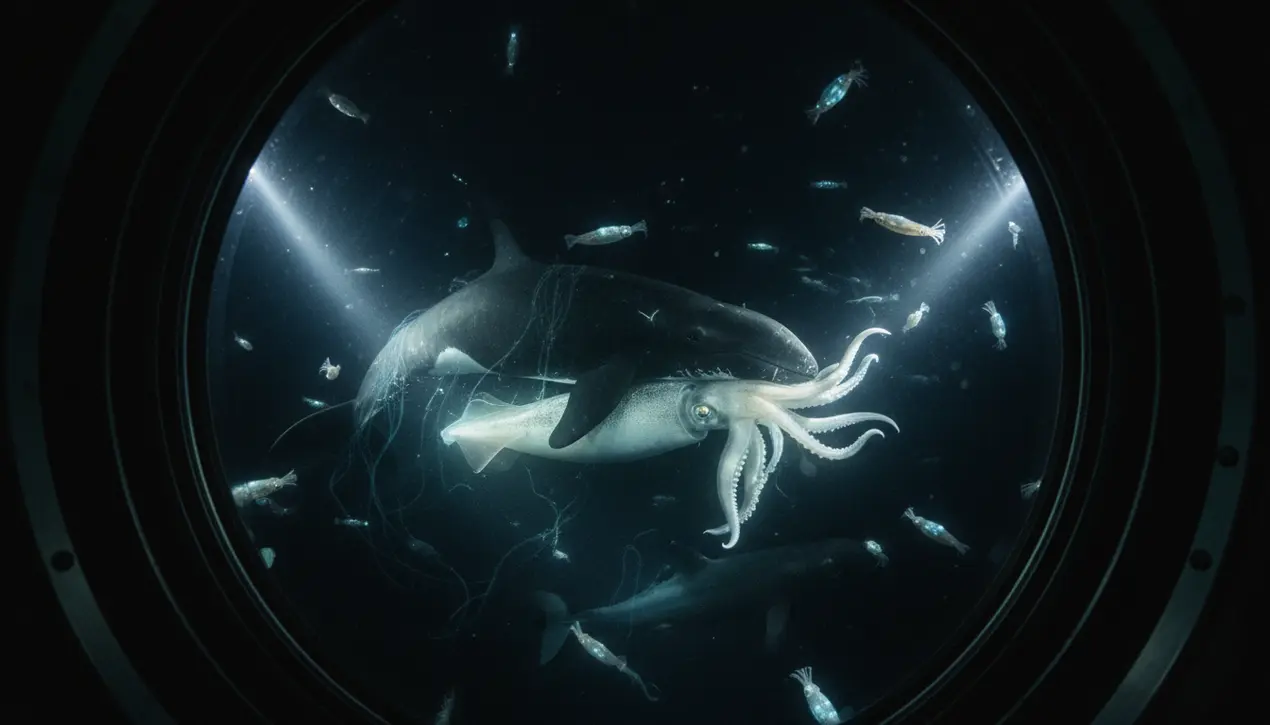
SciencebiologyMarine Biology
New research uncovers the massive squid diet of Hawaiian pilot whales
RA
Rachel Adams
3 hours ago7 min read
In the profound, light-starved depths of the Pacific Ocean, a remarkable ecological drama unfolds daily, one that new research has now quantified with staggering clarity. Hawaiian short-finned pilot whales, those sleek, social denizens of the deep, are far more voracious hunters than previously understood, embarking on epic dives hundreds of meters down into the inky blackness to snatch squid from the abyss.This isn't merely a casual feeding; it's a high-stakes, energy-intensive endeavor crucial for their survival. By meticulously tagging and tracking eight of these magnificent cetaceans, a dedicated team of researchers has peeled back the layers of this deep-sea mystery, calculating the immense caloric cost of these forays and, consequently, the sheer volume of prey required to fuel them.The findings are as humbling as they are illuminating: each individual whale consumes dozens to hundreds of squid every single day. When you scale this up to the entire population frequenting Hawaiian waters, the collective appetite reaches an almost incomprehensible 88,000 tonnes of squid consumed annually.This figure isn't just a number; it's a testament to the whales' role as a dominant apex predator and a crucial indicator of the health of the entire mesopelagic ecosystem. To put this into a broader ecological context, this annual squid harvest represents a massive transfer of energy through the food web, one that rivals the agricultural output of a small nation.The deep-sea squid populations these whales rely upon are themselves part of a delicate, complex web of life that is increasingly vulnerable to the cascading effects of climate change, from ocean acidification to shifting water temperatures and oxygen levels. The relentless hunting pressure exerted by the pilot whales acts as a natural regulatory force, but it also makes them exquisitely sensitive to any disruptions in their prey base.What happens to a population of deep-diving specialists if their primary food source migrates, diminishes, or changes its diel vertical migration patterns in response to a warming ocean? The question echoes concerns seen in other marine systems, from the krill-dependent whales of the Antarctic to the salmon-reliant orcas of the Pacific Northwest, where shifts in prey availability have led to nutritional stress and population decline. This research, therefore, is more than a fascinating dietary study; it's a critical baseline.It provides a vital data point for conservationists and policymakers, underscoring the urgent need to protect not just the charismatic megafauna we see at the surface, but the entire, hidden biological pump of the deep sea that sustains them. The silent, dark world where these pilot whales hunt is as vital to our planet's biosphere as any rainforest, and understanding the intricate relationships within it, like the one between a whale and its squid, is the first step toward ensuring its—and their—future.
#featured
#Hawaiian pilot whales
#squid diet
#marine biology
#animal behavior
#research findings
#energy consumption
Stay Informed. Act Smarter.
Get weekly highlights, major headlines, and expert insights — then put your knowledge to work in our live prediction markets.
Related News
Comments
Loading comments...
© 2025 Outpoll Service LTD. All rights reserved.